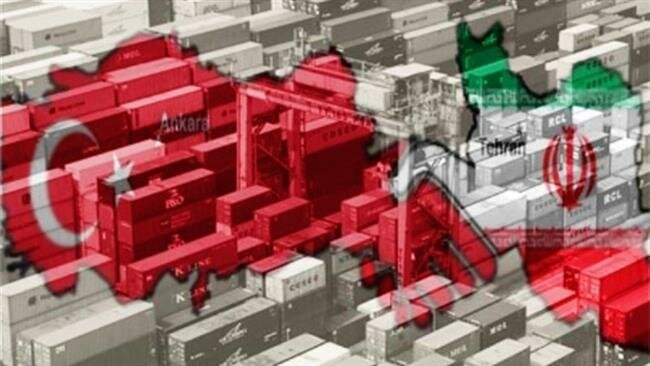Major leap in Iran’s trade with Turkey

While the U.S. unilateral sanctions against Iran have created some limitations for trade with the Western partners which led the Islamic Republic to expand economic and trade ties with its neighbors and boost non-oil exports to them, trade with the northwestern neighbor, Turkey, is growing significantly.
The statistics recently released about Iran’s trade during spring, which corresponds to the first quarter of Iranian calendar year, indicate that the country’s value of non-oil exports to Turkey has risen five folds compared to the same period of time in the previous year.
Iran exported $2.235 billion of non-oil products to Turkey in spring of this year, rising 430 percent from $421 million in spring of the previous year.
And it is while the Islamic Republic has imported just $1.26 billion of non-oil commodities from its neighbor, Turkey, in the mentioned time span.
For the expansion of trade with the neighboring countries, Iran has also put boosting trade via border areas on agenda.
In this due, a memorandum of understanding (MOU) has been recently made between Iran and Turkey for the expansion of bilateral border trade.
The MOU was signed by Mohammad Abedi, the governor of Iran’s Khoy Country in northwestern province of West Azarbaijan, and Mehmet Emin Bilmez, the governor of Turkey’s Van Province, during the meeting of Iran-Turkey Joint Committee of Border Cooperation held at the office of Khoy governor last week.
While sanctions have created some problems in the way of trade between the two sides, they are continuing and even strengthening bilateral transactions, as in mid-June, the head of Iran-Turkey Joint Chamber of Commerce said Turkey’s trade center in Tehran is completely active and the trade is going smoothly between the two countries.
“Although there are small problems with money transactions but still we manage and the trade is going on smoothly,” Reza Kami told ILNA.
Kami noted that Turkish companies are willing to contribute the reconstruction projects in Iran’s flood-stricken regions, saying, “Turkish companies have a good history in manufacturing prefabricated houses, and in recent years we have seen that a few Turkish companies were active in Mehr Housing Projects."
He further mentioned establishment of an Iran-Turkey special economic zone, noting that the two sides are determined in this regard but there are still some issues that should be discussed and resolved.
Mentioning the impact of sanctions on trade between the two countries, Kami said: “The Turkish authorities have repeatedly stated that they are not going to comply with the U.S. sanctions, but obviously the sanctions have created some problems regarding banking relations, and it should be also borne in mind that the entire region's economy is in recession."
In early June, Iran’s Ambassador to Turkey Mohammad Farazmand announced that Iran and Turkey are working on a financial mechanism channel to bypass the U.S. unilateral sanctions.
The ambassador said that such mechanism is aimed at preventing bilateral trade from falling victim to trans-regional players.
Also, in mid-May, Turkish Ambassador to Iran Derya Ors had said that his country wanted the barriers in the way of trade with Iran to be removed.
He said: “If these obstacles, which are mainly related to Iran’s regulations, are removed, Turkish businessmen and investors will be willing to come and invest in Iran.”
